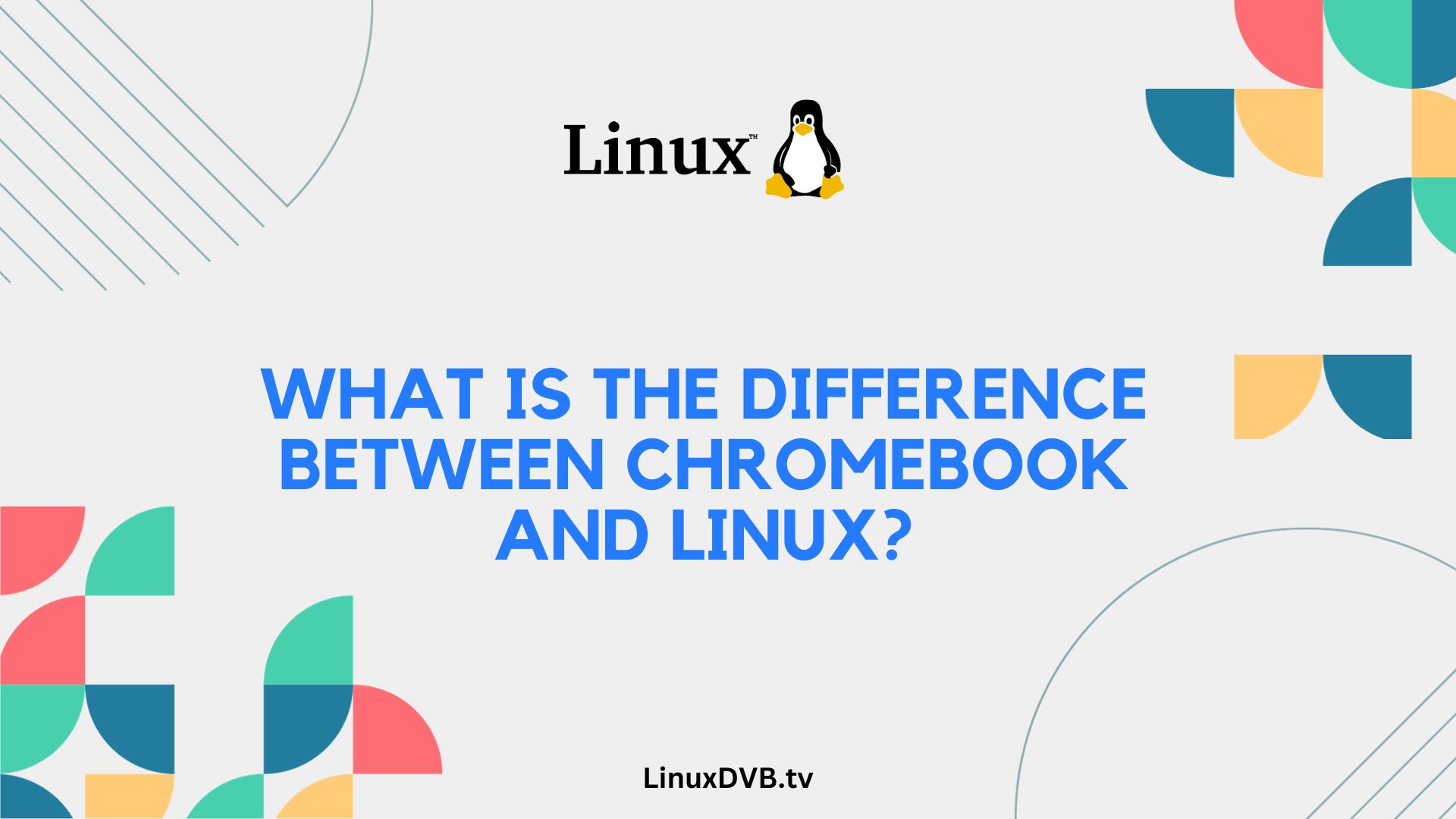Introduction
In the ever-evolving world of technology, choosing the right operating system can be a daunting task. Chromebook and Linux are two popular options, each with its own set of features and capabilities. To help you make an informed decision, we will delve into the key differences between Chromebook and Linux in this article.
Table of Contents
Chromebook vs. Linux: An In-Depth Comparison
What is the difference between Chromebook and Linux?
Let’s kick things off by understanding the fundamental disparities between these two operating systems.
Operating System Type
- Chromebook: Chrome OS
- Linux: Diverse range of distributions (Ubuntu, Fedora, Debian, etc.)
Chromebook primarily runs on Chrome OS, a cloud-based operating system developed by Google. On the other hand, Linux offers a plethora of distributions, allowing users to choose the one that suits their preferences and needs.
User Interface
When it comes to the user interface, there are notable distinctions.
Chromebook Interface
Chrome OS boasts a simple and minimalist interface, resembling the Google Chrome browser. It emphasizes web-based applications and relies heavily on an internet connection for full functionality.
Linux Interface
Linux, in contrast, provides users with a more customizable experience. It offers various desktop environments, such as GNOME, KDE, and XFCE, allowing you to tailor your interface to your liking.
Application Ecosystem
Chromebook Apps
Chromebooks excel in web-based applications, making them ideal for users who primarily work and play in the cloud. While there’s a growing selection of Android apps available, the options are more limited compared to traditional desktop operating systems.
Linux Software
Linux offers a vast repository of open-source software through package managers like APT and YUM. Users can access a wide range of applications, from office suites to multimedia tools, and even software development environments.
Hardware Compatibility
Chromebook Hardware
Chromebooks are designed to work seamlessly with the hardware they come with. While this ensures a stable experience, it limits the ability to install other operating systems or customize the hardware.
Linux Hardware
Linux has broader hardware compatibility, making it suitable for a wider range of devices, including older computers and powerful workstations. You have the freedom to choose and modify hardware components to your heart’s content.
Offline Capabilities
Chromebook Offline Use
Chromebooks are optimized for online use, and while they do offer some offline capabilities, their full potential is realized when connected to the internet.
Linux Offline Use
Linux operates efficiently both online and offline. Users can work, install applications, and perform various tasks without relying on a constant internet connection.
Privacy and Security
Chromebook Security
Chrome OS is known for its robust security features. It benefits from automatic updates, sandboxed applications, and verified boot processes, enhancing protection against malware and cyber threats.
Linux Security
Linux is renowned for its security and stability, thanks to a large community of developers and contributors who actively address vulnerabilities and release timely updates. Users have greater control over security settings and software choices.
Price Point
Chromebook Affordability
Chromebooks are generally more affordable than most laptops, making them an attractive option for budget-conscious consumers.
Linux Cost
Linux is open-source and free to use, making it an economically sound choice for those who prefer customization without breaking the bank.
FAQs
Can I install Linux on a Chromebook?
Yes, it’s possible to install Linux on a Chromebook, but it requires some technical expertise and may not be officially supported on all models.
Which operating system is better for gaming?
Linux offers more gaming flexibility, as it supports a wide range of games through platforms like Steam and Proton. Chromebook’s gaming capabilities are limited to Android games.
Is Linux more suitable for programming?
Linux is a popular choice among programmers and developers due to its compatibility with a wide range of programming languages and development tools.
Can I run Windows software on a Chromebook?
Chromebooks natively support Android apps, but running Windows software would require emulation or virtualization, which can be challenging for the average user.
Are Chromebooks and Linux both suitable for education?
Both Chromebooks and Linux can be used in educational settings, but Chromebooks are particularly popular in schools due to their simplicity and affordability.
Which one should I choose: Chromebook or Linux?
The choice between Chromebook and Linux ultimately depends on your specific needs and preferences. Consider your computing habits, desired level of customization, and budget when making your decision.
What is the difference between Chromebook and Linux?
Chromebook is a type of laptop that runs ChromeOS, a Linux-based operating system developed by Google. Linux, on the other hand, is a broader category of operating systems, and there are many different distributions (distros) of Linux, including Ubuntu, Fedora, and Debian.Which is better ChromeOS or Ubuntu?
The choice between ChromeOS and Ubuntu depends on your specific needs. ChromeOS is more focused on web-based applications and is designed for simplicity and security, while Ubuntu is a more versatile Linux distro that offers a wider range of software and customization options. The “better” option depends on your use caseConclusion
In the world of operating systems, Chromebook and Linux each offer a unique set of features and capabilities. Chromebook excels in simplicity and affordability, while Linux provides versatility, customization, and robust security. Choosing between them depends on your individual needs and preferences.

